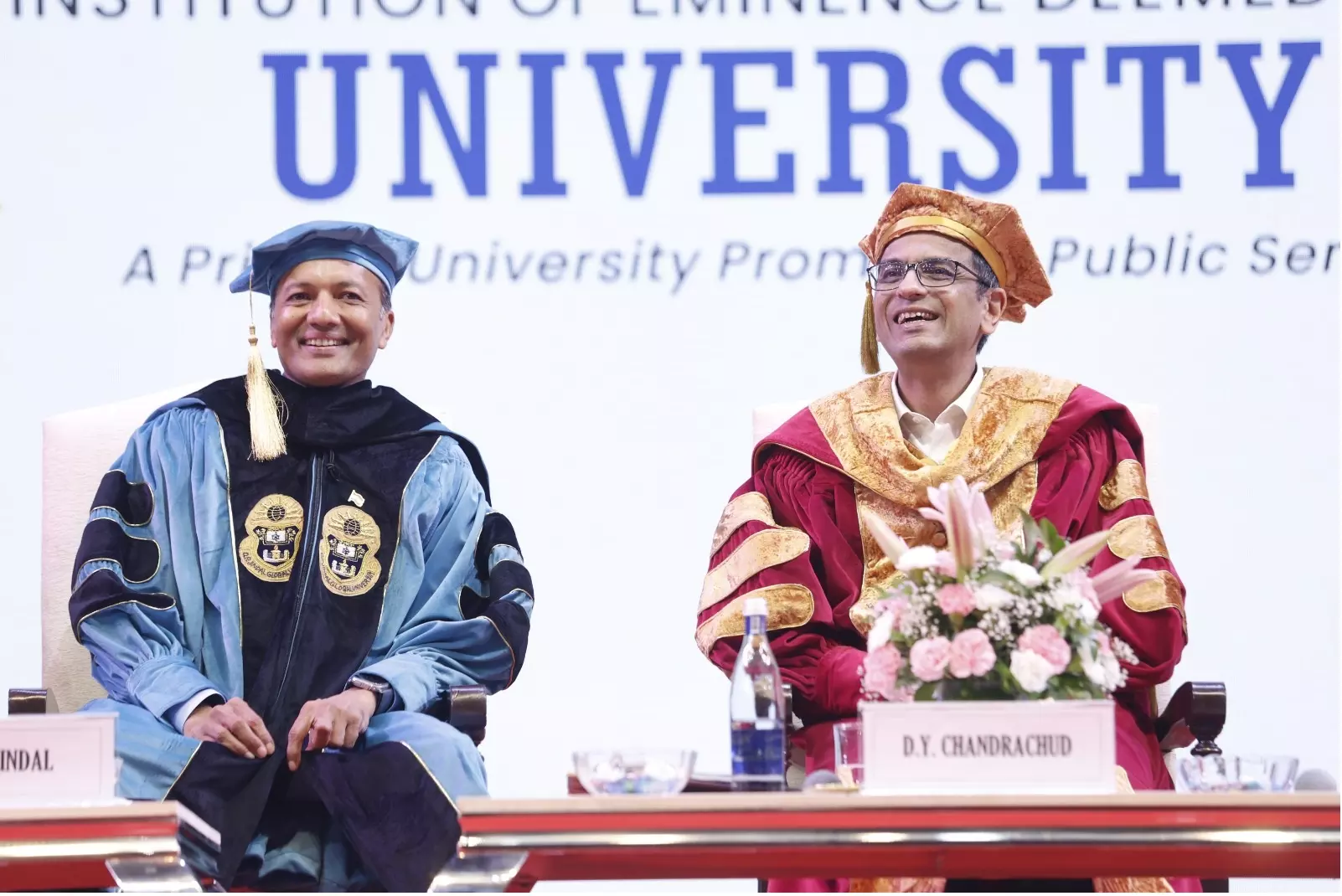Constitution a powerful tool to curb inequality, says CJI
“Constitutional longevity speaks to the wisdom of our framers who were prescient enough to incorporate grounding elements into the Constitution without making it into a rigid normative, and a brittle document,” he said

New Delhi: “The Constitution is a powerful tool to curb disparities and it creates institutions and structures which are meant to guard against inequality. The Constitution provides for checks and balances within these institutions and also stipulates institutional priorities and obligations towards citizens of the country,” said Chief Justice of India D.Y. Chandrachud at the 13th convocation of the O.P. Jindal Global University on Friday.
“Constitutional longevity speaks to the wisdom of our framers who were prescient enough to incorporate grounding elements into the Constitution without making it into a rigid normative, and a brittle document,” he said. The CJI said the Constitution, while being a sturdy foundation for our democracy, is also sufficiently flexible. He said “in reality, justice means different things in different contexts and it takes a compassionate eye to spot injustices around them”.
The convocation saw nearly 3,100 students graduate from the university from its 10 diverse schools which include law, business, banking and finance, journalism, liberal arts and humanities, government and public policy and international affairs. The recipients of the academic gold, silver and bronze medals were conferred the award in the presence of the Chief Justice, and the university’s chancellor and vice-chancellor.
Justice Chandrachud also implored the students to spend their days and lives not only as ambassadors of their alma mater, but also as the voices of reason in a clutter of noise. “The danger to our societies today is the clutter of noise and we need the voice of reason among the voices of unbridled passion,” he said.
The CJI said: “Take this opportunity of personal transition to envision your goals not only as individuals but also as members of society. We know better than to assume that justice is capable of a single definition or that it is the exclusive concern of courts and legislatures. Far from it being the exclusive domain of lawyers, one does not even need to know the law to spot vacuums in our decisions, policies and institutional choices. Economists among you would perhaps similarly spot the cost of low female workforce participation to the country’s fiscal progress or the cost of women’s unpaid labour as home-makers.”
